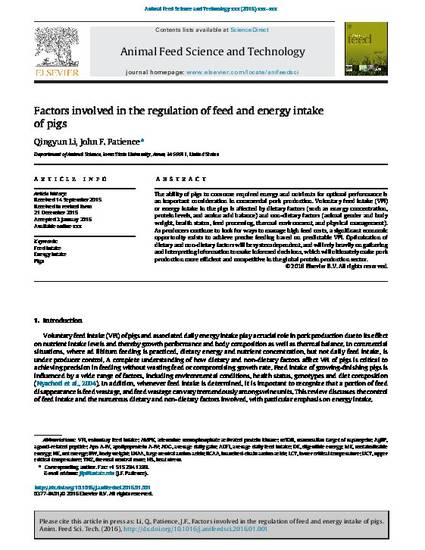
The ability of pigs to consume required energy and nutrients for optimal performance is an important consideration in commercial pork production. Voluntary feed intake (VFI) or energy intake in the pigs is affected by dietary factors (such as energy concentration, protein levels, and amino acid balance) and non-dietary factors (animal gender and body weight, health status, feed processing, thermal environment, and physical management). As producers continue to look for ways to manage high feed costs, a significant economic opportunity exists to achieve precise feeding based on predictable VFI. Optimization of dietary and non-dietary factors will be system dependent, and will rely heavily on gathering and interpreting information to make informed decisions, which will ultimately make pork production more efficient and competitive in the global protein production sector.
Available at: http://works.bepress.com/john-patience/109/

This is a manuscript of an article published as Li, Qingyun, and John F. Patience. "Factors involved in the regulation of feed and energy intake of pigs." Animal Feed Science and Technology 233 (2017): 22-33. doi:10.1016/j.anifeedsci.2016.01.001. Posted with permission.